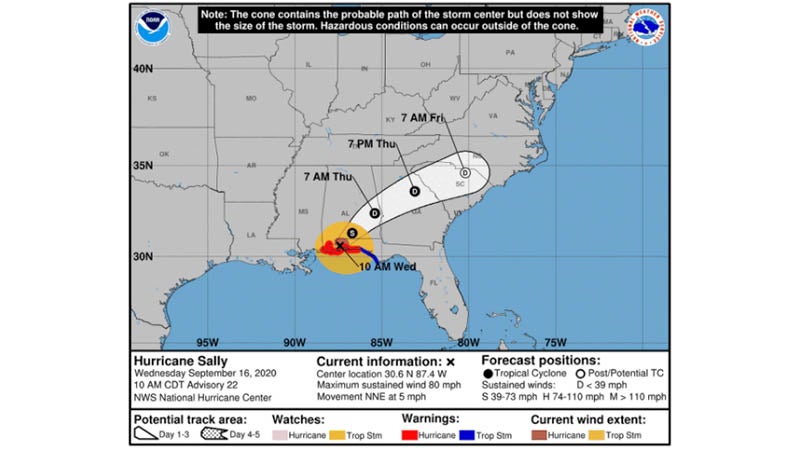Pride Survey exposes substance use
Published 12:00 am Friday, December 6, 2013

As a crowd looks on, Judge Frank “Trippy” McGuire speaks at this year’s “Religious Leader’s Symposium.”
According to a recent countywide survey, students in the Opp City School System recorded the highest in admitted usage of cigarettes, alcohol, marijuana and prescription drugs. Students in the Andalusia City School System had the second-highest numbers, while Covington County School System students recorded the lowest numbers in all categories.
Those statistics come from this year’s Pride Survey – an anonymous, self-reporting questionnaire taken by students in sixth through 12th grades throughout the county.
At OHS, 59.1 percent of the seniors reported that they had used alcohol in the previous 30 days; 31.1 percent said they had used marijuana; and 22.7 percent said they had used prescription drugs.
At AHS, 41.7 percent of the seniors reported alcohol use; 27.7 percent said they had used marijuana; and 9.6 percent had used prescription drugs.
 In the county schools, 29.6 percent of seniors reported alcohol use; 13.6 percent reported pot use; and 7.4 percent had used prescription drugs.
In the county schools, 29.6 percent of seniors reported alcohol use; 13.6 percent reported pot use; and 7.4 percent had used prescription drugs.
Thursday, officials with the Covington County Children’s Policy Council Coalition, which annually orchestrates the survey, presented the numbers at a “Religious Leader’s Symposium” that included local leaders from the religious, civic and educational arenas.
Circuit Judge Frank “Trippy” McGuire, chairman of the CCCPCC, led Thursday’s symposium at the Covington County Courthouse.
McGuire said children are being exposed to tobacco, drugs and alcohol at an early age, adding it is the parent that has the best chance of dissuading substance abuse.
“Parents hold the key,” McGuire said. “If parents don’t communicate with their children, the world will.”
McGuire stressed the importance of arming parents with the tools necessary to communicate with their children.
“Please stress to parents the importance of communicating with their children,” he said. “If kids have strong Christian convictions, you’ll not have to worry much. They’re still exposed to it, but there is less of a chance of them succumbing to the pressure.”
Susan Short, CCCPCC executive director, also spoke with the crowd, and shared the results of this year’s Pride Survey.
Survey numbers included the percentage of students who admit to using cigarettes, alcohol, marijuana and prescription drugs; the students’ perception of the risk of using the substances; the perceptions of parental disapproval of the use of the substances; and the perceptions of friends’ disapproval of the substances.
McGuire reminded the crowd that, while the statistics are broken up by school system, they need not get hung up on that aspect of the survey.
“This is not a reflection of the schools,” he said. “That’s not where they are getting this stuff. They are getting it mainly from home and from places they go after school.”
Short said one thing parents can do to head off future substance-related issues is to talk to children at an early age.
“They recommend you start at around third grade,” Short said. “If you wait to talk about drinking and driving until they are 16, you’re too late.”
Short said any parents who would like additional tips on how to talk to children about the dangers of substance abuse, or would like a copy of this year’s survey, may contact her at CCCPCC, by phone at 334.881.2319 or by email at susanjshort@gmail.com.
Other agencies that may assist with substance-related issues with children and teens include: Alcoholic Beverage and Control Board – 334.222.3200; Covington County Sheriff’s Office – 334.428.2644; Covington County Drug Task Force – 334.222.3532; Alabama Department of Public Safety (Trooper Kevin Cook) 334.242.4445.






